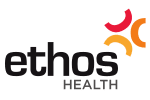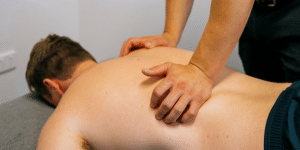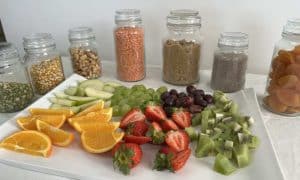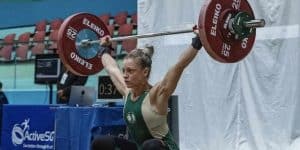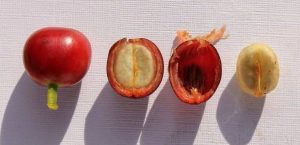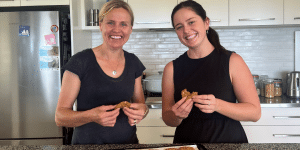Iron, and why it’s so important

What is iron
Iron is a mineral that is essential for many bodily processes including immune function and transporting oxygen around the body in our blood. Iron is vital for energy and if insufficient intake can contribute to fatigue and even development of anaemia. Being an essential nutrient, we need to consume iron in food. Iron can be found in a wide range of foods; however some are better sources than others.
There are two types of iron
Haem iron is found in animal foods and is more easily absorbed by the body.
The main sources include red meat, chicken and fish.
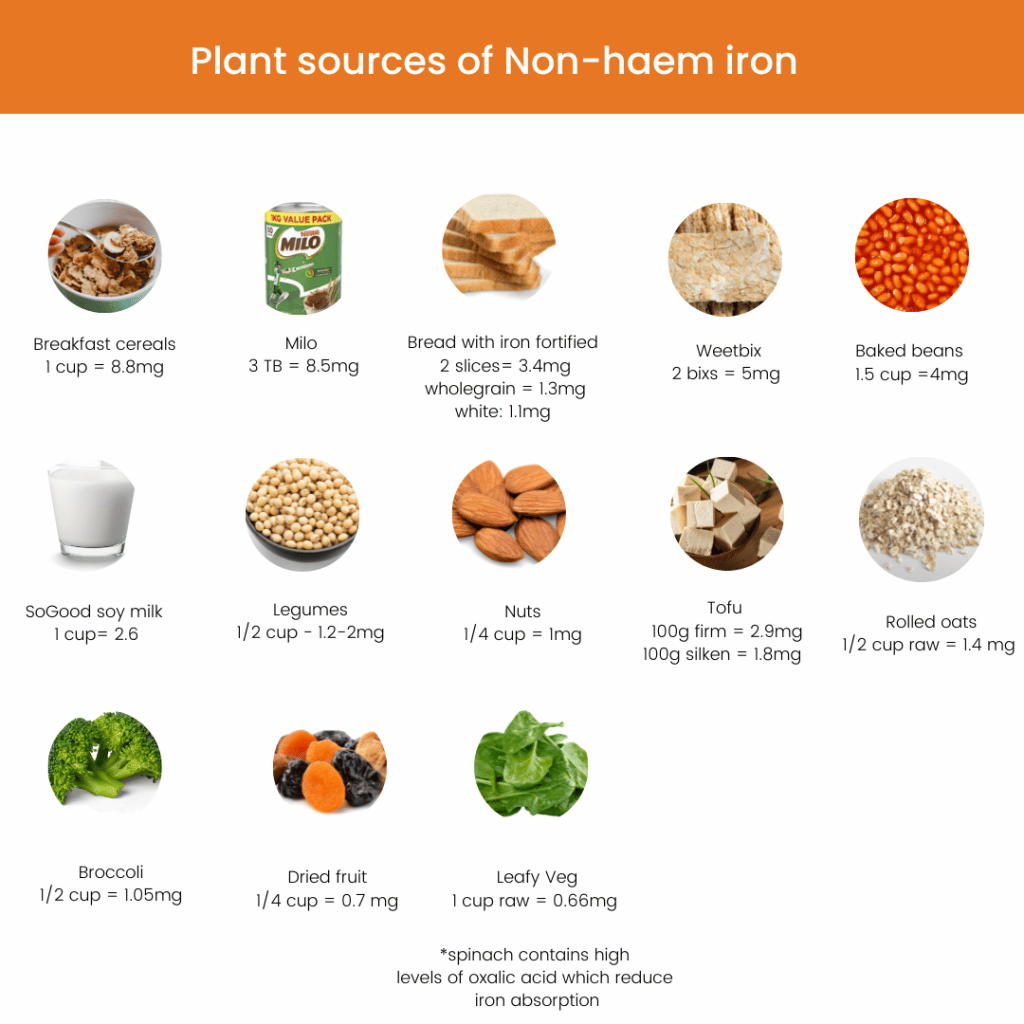
Non-haem iron is found in plant foods. Non-haem iron is not absorbed as well as haem iron, so vegans and vegetarians who only eat non-haem iron sources should aim for twice their recommended intake. Plant foods containing iron include legumes, wholegrain bread, cereals, nuts seeds and green leafy vegetables.
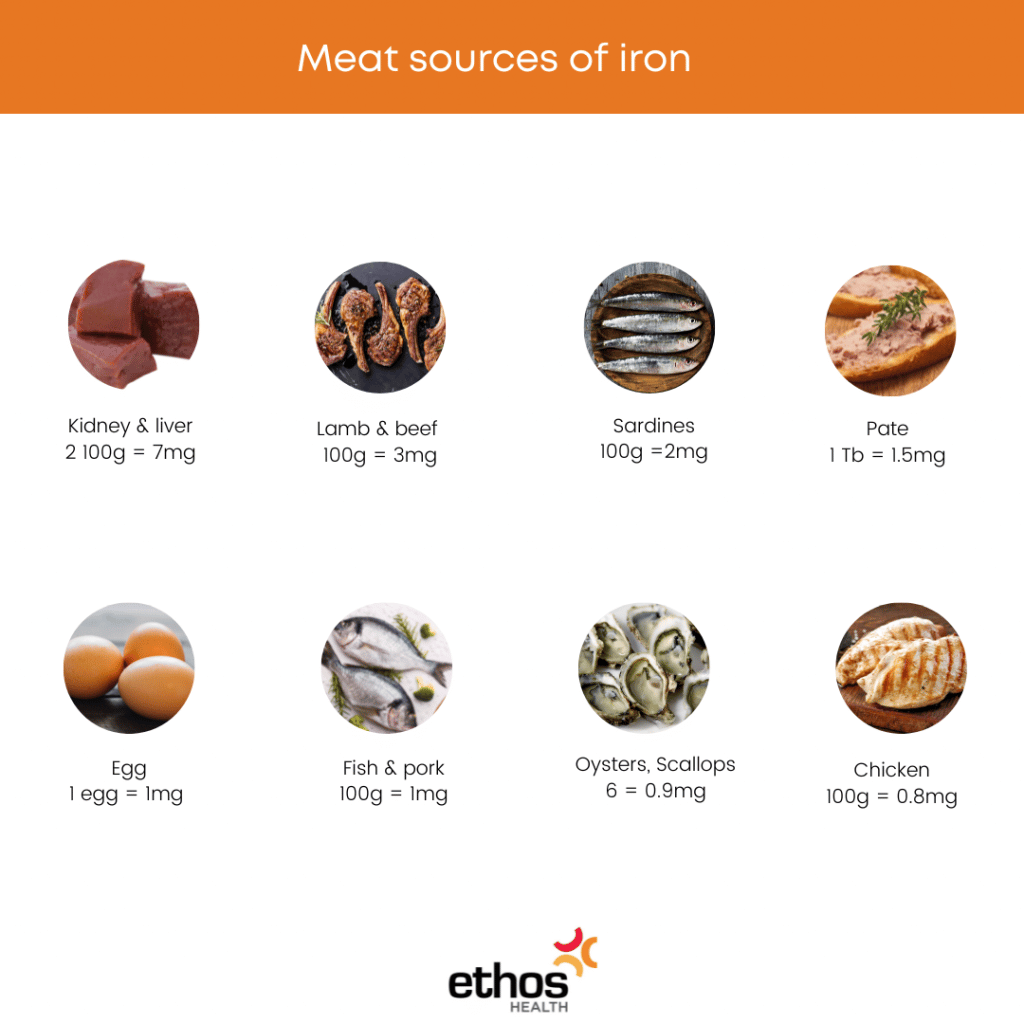
Why is iron important?
If you don’t eat enough iron in food you may develop anaemia. If you have anaemia your body does not get enough oxygen-rich blood. The lack of oxygen can make you feel tired or weak. You may also have shortness of breath, dizziness, headaches, or an irregular heartbeat. In children, anaemia may contribute to poor appetite. Iron can be lost from the body through sweat and blood loses including the menstrual cycle. Read more on other supplements here.
If you have concerns about your iron intake or losses, chat to your GP about checking your iron levels in a blood test.
Iron deficiency is one of the most common deficiencies worldwide. Groups at greater risk are:
- Pregnant women
- Menstruating women, especially those with heavy periods
- Toddlers who drink too much cow’s milk
- Vegetarians
- Athletes
- Teenage girls
How much do we need?
| Age | Recommended dietary intake RDI (mg/day) |
| 7-12 months | 11 |
| 1-8 years | 9-10 |
| 9-13 years | 8 |
| Age | Female RDI | Male RDI |
| 14-18 | 15 | 11 |
| 19-50 | 18 | 8 |
| 51+ | 8 | 8 |
| Vegetarians | 32-49 | 14 |
| Pregnancy | 27 | |
| Lactation | 9 |
Signs of low iron
- Irritability
- Lacking energy
- Headaches
- Dizziness
- Frequent headaches
- Poor growth and/or fussy eating in children and babies
How to increase absorption of non-haem iron in foods
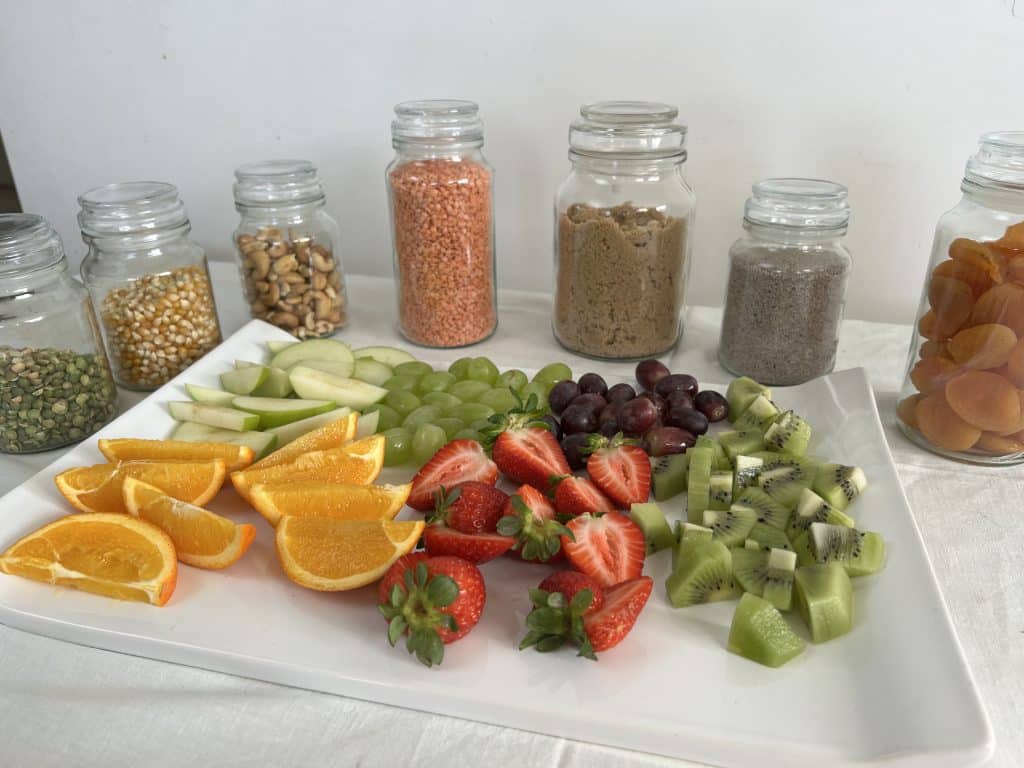
Consume vitamin C-rich foods with plant-based iron foods to increase absorption. Foods containing vitamin C include capsicum, broccoli, green leafy vegetables, kiwifruit, pawpaw, melons, cabbage, cauliflower, strawberries, tomato, citrus fruit and citrus juice
Avoid eating foods that inhibit iron absorption at the same meal/snack as iron-containing plant foods. Ideally you would have about 1 hour between consuming iron-containing foods and foods that inhibit iron absorption.
Foods that inhibit iron absorption are:
- calcium-containing foods (milk, cheese, yoghurt, custard) and calcium supplements. Drinks containing tannins or polyphenols such as tea, coffee and red wine.
What to do if you have low iron
If you have been medically diagnosed with low iron (anaemia) you can discuss supplementation or an iron infusion with your GP. You should only take iron supplements if recommended by your GP after diagnosis of iron deficiency, as iron supplements can be toxic. An Iron infusion is only recommended when iron levels are extremely low, as is quicker at replenishing iron stores compared to supplements.
If you are just wanting to increase your iron intake due to a vegetarian or vegan diet or concerns of menstrual losses or other blood losses without a diagnosed deficiency you can increase your intake of foods containing iron.
If you need assistance to increase your iron intake contact us at Ethos Health to see one of our friendly dietitians.
About the authors
Dietitians Scarlett Gray and Jane Waston co-wrote this blog, they both see many clients with iron deficiencies and can support you with diet.
